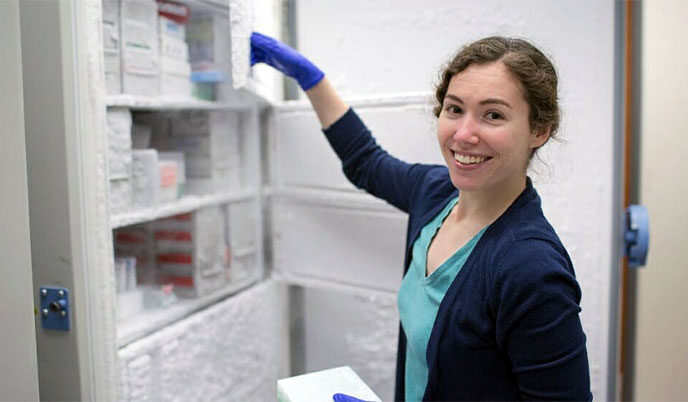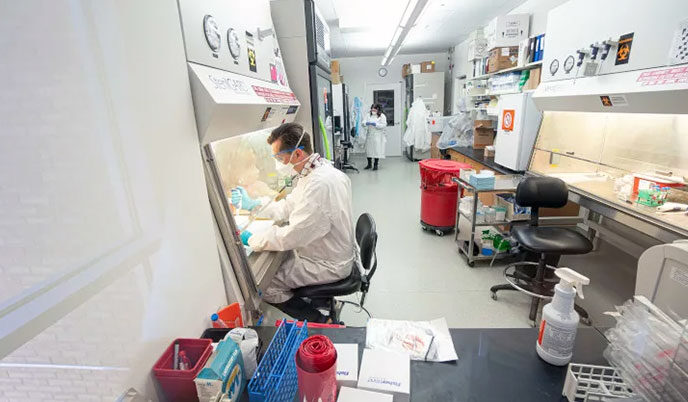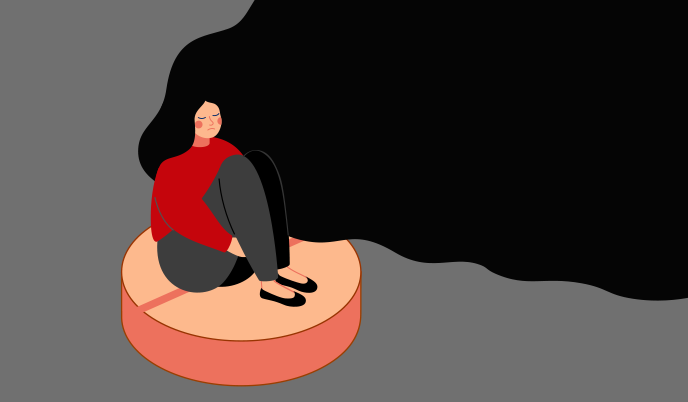
UW Department of Psychiatry demonstrates effectiveness of telehealth in COVID-19 pandemic response
The COVID-19 pandemic placed limitations on face-to-face patient care, causing complexity for hospital psychiatric units. Undeterred, psychiatrists at the UW School of Medicine and Public Health quickly shifted to new ways of providing care.

Teams from Wisconsin, New York search for molecular clues to defeat COVID-19
In the center of the COVID-19 pandemic, hospitals are racing to maintain quality care for patients with severe disease while facing a shortage of resources and limited understanding of the novel coronavirus.

UW–Madison researchers tracking travel, social media to help contain virus
Forced to choose between staying away from others to prevent the spread of a pandemic and casting a ballot in Wisconsin’s April 7 election, crowds lined up at polling places across the state — including thousands funneled to five sites in Milwaukee.

Wisconsin State Laboratory of Hygiene working with campus partners to test for COVID-19
As COVID-19 has infected more than 1 million people around the world — and more than 2,500 Wisconsin residents — since late December 2019, everything from nose-and-throat swabs to the chemical substances, or reagents, needed to conduct tests for the disease are in short supply.

Exercise linked to enhanced brain function in adults at risk for Alzheimer’s Disease
Regular aerobic exercise may decrease the likelihood of developing Alzheimer’s disease, or slow its progression, in adults who are at a higher risk, according to a new study from the University of Wisconsin School of Medicine and Public Health (UW SMPH).

Scoring system predicts seizure risk in hospitalized patients
A new rating system can accurately predict which critically ill patients are in danger of having seizures while hospitalized, a large, multi-national trial shows.

UW–Madison study finds where you live affects brain health
Living in disadvantaged neighborhoods may impact the brain, according to researchers at the University of Wisconsin School of Medicine and Public Health.

Inflammation predicts response to anti-depression medication
Children and teens with bipolar depression responded better to an antipsychotic medicine if they had increased markers of inflammation in their blood, a new University of Wisconsin–Madison study shows.

UW Carbone Cancer Center physicians: All cancer patients should be screened for Hepatitis C
All cancer patients should be screened for exposure to the Hepatitis C virus because cancer treatment can make an active viral infection worse, according to a statement published this month in the Journal of Oncology Practice.

Survey of the Health of Wisconsin presents Latino Community Health Survey at conference
The Wisconsin Research and Education Network recently invited Allison Rodriguez, a SHOW student investigator, to present at their annual conference in Madison.

Nation’s first and only rural Ob-Gyn residency program expands
The nation’s only rural Ob-Gyn residency program is expanding. Starting October 7, Western Wisconsin Health in Baldwin, Wisconsin will join the rural rotation as a part of the UW Ob-Gyn rural-residency program.

UW study: Adult binge drinking costs Wisconsin $4 billion a year
A new study by the University of Wisconsin Population Health Institute reveals the financial magnitude of adult binge drinking in Wisconsin.